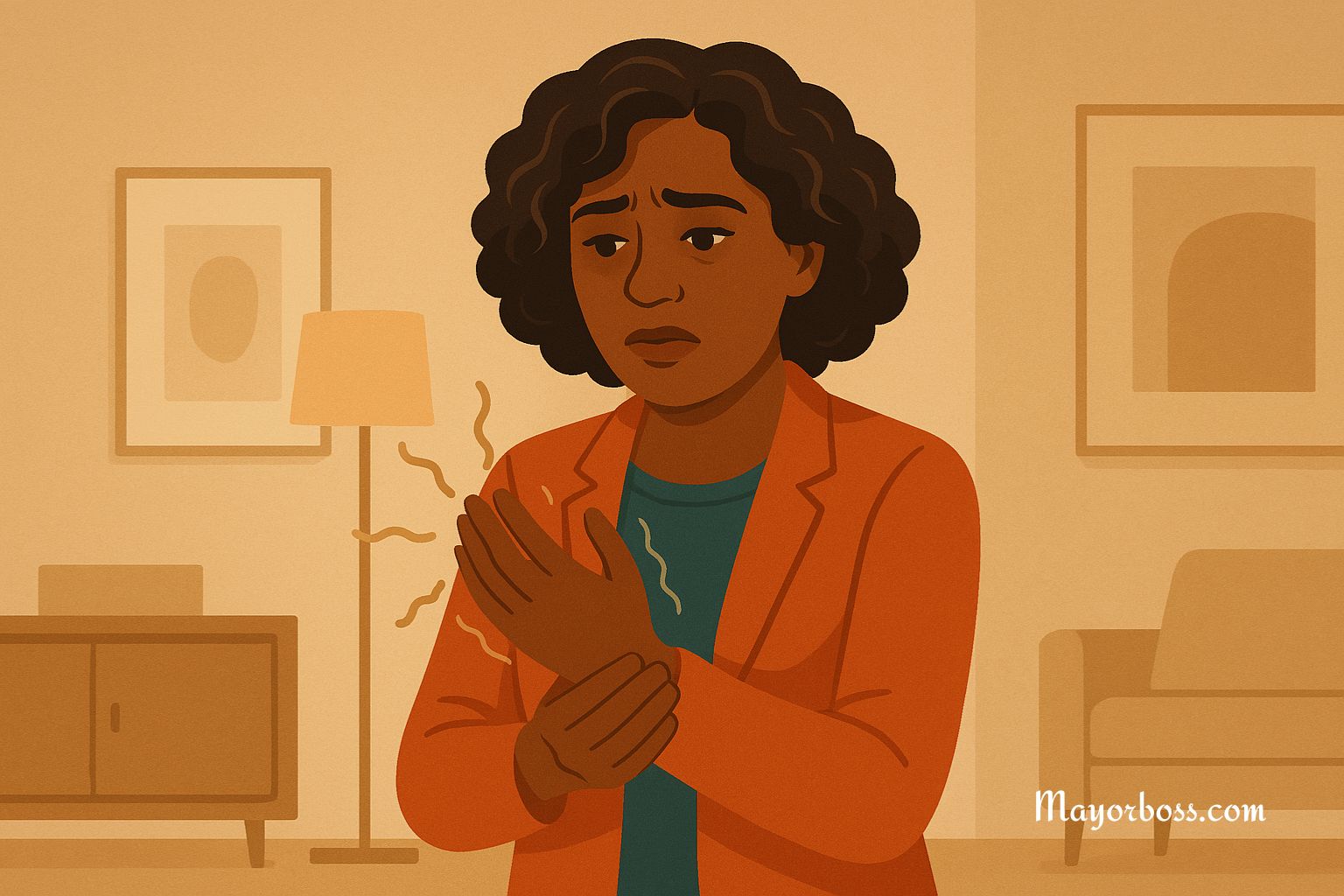10 Silent Symptoms That Should Never Be Ignored
Many health problems begin quietly. Your body may send subtle signals when something is wrong. These signs may not cause pain or major discomfort, so it’s easy to overlook them. But silent symptoms can be early warnings of serious conditions. Knowing what to look for can help you catch problems before they get worse.
Here are ten silent symptoms you should never ignore.
1. Unexplained Weight Loss

If you’re losing weight without trying, pay attention. A sudden drop of more than 10 pounds or 5% of your body weight within six months may signal an underlying issue. It could be a sign of diabetes, cancer, thyroid problems, or digestive disorders. If you notice your clothes getting looser without changing your eating habits or activity level, talk to your doctor.1
2. Persistent Fatigue
Feeling tired after a long day is normal. But constant exhaustion that doesn’t improve with rest is not. Persistent fatigue may point to anemia, heart disease, sleep apnea, or even depression. It may also be an early sign of certain cancers.2 If you feel drained for weeks, don’t just push through it—seek medical advice.
3. Shortness of Breath

If you find yourself getting winded doing everyday tasks like walking up stairs or talking, that’s not normal. Shortness of breath could be linked to heart disease, lung problems, or a blood clot. Even if it’s mild, don’t brush it off. Get it checked.
4. Changes in Bowel Habits

A shift in how often you go to the bathroom or the appearance of your stool can be a clue to something deeper. Constipation, diarrhea, or narrow stools that persist may point to colon issues. If you notice blood in your stool, don’t wait—this needs urgent attention. Changes that last more than a few days should be discussed with your doctor.
5. Frequent Urination

If you’re rushing to the bathroom more often than usual, especially at night, it may be more than just drinking too much water. Frequent urination can be a symptom of diabetes, urinary tract infections, or prostate problems.3 If it’s accompanied by pain, urgency, or leaking, get evaluated.
6. Memory Lapses or Confusion

Occasionally forgetting names or misplacing your keys is normal. But frequent memory issues, confusion, or trouble finding words could be an early sign of cognitive decline. Conditions like Alzheimer’s disease and other forms of dementia often begin subtly.4 Early evaluation can help slow the process and improve the quality of life.
7. Numbness or Tingling in Hands or Feet

If you notice a “pins and needles” feeling that doesn’t go away, it may be a sign of nerve damage. Diabetes is a common cause, but so are vitamin deficiencies, multiple sclerosis, and spinal problems.5 It’s important to find the cause before the damage becomes permanent.
8. Trouble Swallowing
Struggling to swallow food or liquids can be a red flag. It might be caused by acid reflux, but in some cases, it could point to throat cancer or neurological conditions. If you’re coughing or choking while eating or food feels stuck, don’t delay getting help.
9. Yellowing of the Skin or Eyes
This is called jaundice. It can be a sign of liver trouble. Liver diseases like hepatitis or liver failure often show up this way first.6 If the whites of your eyes turn yellow or your skin looks more yellow than usual, see your doctor promptly.
10. Chest Discomfort Without Pain

Chest pain is a well-known heart attack symptom, but not everyone experiences pain. Some people feel pressure, squeezing, heaviness, or burning in the chest. Others may feel it in the back, jaw, or arms. These can be silent signs of a heart problem. Don’t wait it out—seek medical care immediately.
Final Thoughts
Your body often presents early signs when something is wrong. These signs may be quiet, but they are not harmless. Ignoring them can delay diagnosis and treatment. Therefore, if you notice any of the symptoms above, especially if they last more than a few days, make an appointment with your family doctor.
References:
- https://my.clevelandclinic.org/health/symptoms/unexplained-weight-loss ↩︎
- https://www.mayoclinic.org/symptoms/fatigue/basics/causes/sym-20050894 ↩︎
- https://my.clevelandclinic.org/health/symptoms/15533-frequent-urination ↩︎
- https://pmc.ncbi.nlm.nih.gov/articles/PMC3225285/ ↩︎
- https://www.medicalnewstoday.com/articles/321423 ↩︎
- https://www.ncbi.nlm.nih.gov/books/NBK544252/ ↩︎
